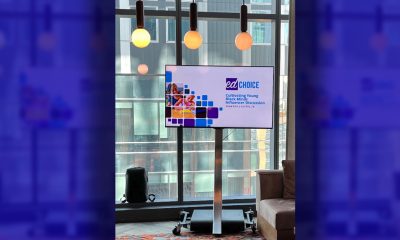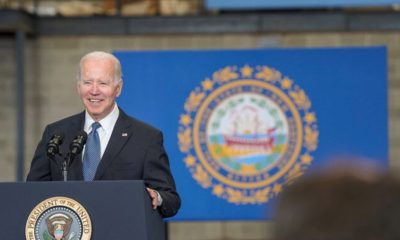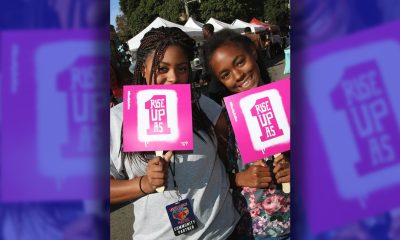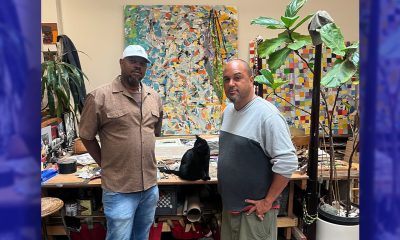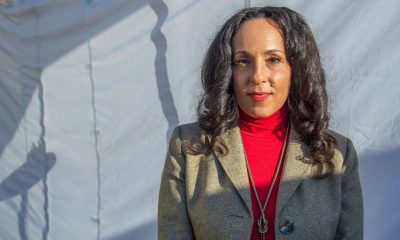Activism
‘Ngingubani:’ Who Am I? How DNA and Oral History Helps Black Youth Connect to Tribal Roots
‘I didn’t know who I was.’ This was not an uncommon belief for teenage boys plucked from the streets of Johannesburg, South Africa. Often disconnected from their families and living on the streets, they had little evidence of strong family ties. Maybe their story sounds familiar to you. Maybe you find yourself asking similar questions: Who am I? Where do I actually belong?

By Chelsea Trautman
‘I didn’t know who I was.’
This was not an uncommon belief for teenage boys plucked from the streets of Johannesburg, South Africa. Often disconnected from their families and living on the streets, they had little evidence of strong family ties. Maybe their story sounds familiar to you. Maybe you find yourself asking similar questions: Who am I? Where do I actually belong?
These questions were the initial inspiration for the Johannesburg Applied Ancestry Program launched in 2006 by researcher and program coordinator Clive Haydon, and Dr. Brian Hill, a university professor at Brigham Young University.
The program’s name: “Ngingubani,” or “Who am I?” in the African Zulu language, has a goal to help teenage boys between the ages of 12-16 better understand their identities by learning and sharing their own family stories.
Connect
One story included a young boy who was separated from his biological mother when he was only 5 years old. Having no written history or knowledge of his family, his story was like many at the Twilight Children’s Center in Johannesburg where the program took place.
Through outreach to extended family, program social workers were able to find this young boy’s mother and facilitate their reuniting nearly 14 years after their separation.
After being connected with unknown relatives, participants sat down for an interview to learn the stories of those who had gone before them: the boys developed a stronger sense of self after hearing their rich oral history from people who shared their blood, culture, and heritage.
Robyn Fivush, PhD and professor of Psychology at Emory University stated: “These kinds of family stories create meaning beyond the individual. To include a sense of self through historical time and in relation to family members” (Jorgenson & Bochner, 2004: Norris, Kuiack, & Pratt, 2004).
Belong
The interviews and DNA samplings gave insight about these young boy’s native ancestral tribes. While not all participants were reunited with parents, they were all still able to connect with a living relative.
Through a culminating cultural celebration, participants at the Twilight Children’s Center dressed in traditional tribal clothing, and shared dances, artwork, and personal stories from the knowledge they gained during the program. This emotional tearful event made the boys feel valued by their parents and motivated their belief in who they could become.
Become
Thanks to DNA testing and family history stories, many can now discover their heritage and find a similar connection and belonging with deceased and distant family members.
A great way to begin is by telling family stories. Tell them as they are, setting aside opinions and personal bias to allow one’s family to interpret the meaning themselves.
For information on how to start, visit: familysearch.org, or through visiting a cemetery or by celebrating an ancestor’s birthday.
The ripple effect of family storytelling has the capacity to answer “Ngingubani.”
Chelsea Trautman is a research assistant at Brigham Young University.
Activism
Oakland Post: Week of July 17 -23, 2024
The printed Weekly Edition of the Oakland Post: Week of July 17 -23, 2024

To enlarge your view of this issue, use the slider, magnifying glass icon or full page icon in the lower right corner of the browser window. ![]()
Activism
Community Celebrates Historic Oakland Billboard Agreements
We, the Oakland Billboard Economic Development Coalition, which includes Oakland’s six leading community health clinics, all ethnic chambers of commerce, and top community-based economic development organizations – celebrate the historic billboard agreements approved last year by the Oakland City Council. We have fought for this opportunity against the billboard monopoly, against Clear Channel, for five years. The agreements approved by Council set the bar for community benefits – nearly $70 Million over their lifetime, more than 23 times the total paid by all previous Clear Channel relocation agreements in Oakland combined.
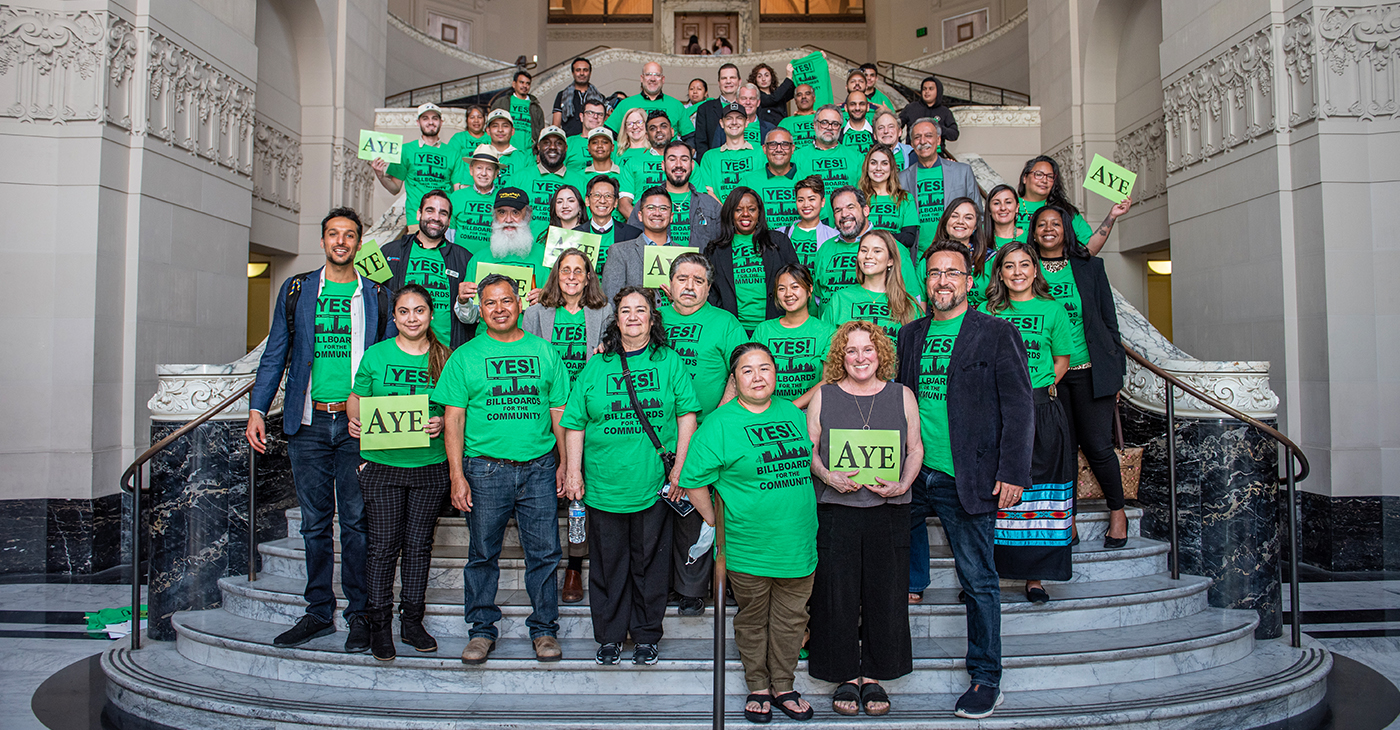
Grand Jury Report Incorrect – Council & Community Benefit
We, the Oakland Billboard Economic Development Coalition, which includes Oakland’s six leading community health clinics, all ethnic chambers of commerce, and top community-based economic development organizations – celebrate the historic billboard agreements approved last year by the Oakland City Council. We have fought for this opportunity against the billboard monopoly, against Clear Channel, for five years. The agreements approved by Council set the bar for community benefits – nearly $70 Million over their lifetime, more than 23 times the total paid by all previous Clear Channel relocation agreements in Oakland combined.
Unfortunately, a recent flawed Grand Jury report got it wrong, so we feel compelled to correct the record:
- Regarding the claim that the decision was made hastily, the report itself belies that claim. The process was five years in the making, with two and a half years from the first City Council hearing to the final vote. Along the way, as the report describes, there were multiple Planning Commission hearings, public stakeholder outreach meetings, a Council Committee meeting, and then a vote by the full Council. Not only was this not hasty, it had far more scrutiny than any of the previous relocation agreements approved by the City with Clear Channel, all of which provide 1/23 of the benefits of the Becker/OFI agreements approved by the Council.
- More importantly, the agreements will actually bring millions to the City and community, nearly $70M to be exact, 23 times the previous Clear Channel relocation agreements combined. They certainly will not cost the city money, especially since nothing would have been on the table at all if our Coalition had not been fighting for it. Right before the decisive City Council Committee hearing, in the final weeks before the full Council vote, there was a hastily submitted last-minute “proposal” by Clear Channel that was debunked as based on non-legal and non-economically viable sites, and relying entirely on the endorsement of a consultant that boasts Clear Channel as their biggest client and whose decisions map to Clear Channel’s monopolistic interests all over the country. Some City staff believed these unrealistic numbers based on false premises, and, since they only interviewed City staff, the Grand Jury report reiterated this misinformation, but it was just part of Clear Channel’s tried and true monopolistic practices of seeking to derail agreements that actually set the new standard for billboard community benefits. Furthermore, our proposals are not mutually exclusive – if Clear Channel’s proposal was real, why had they not brought it forward previously? Why have they not brought it forward since? Because it was not a real proposal – it was nothing but smoke and mirrors, as the Clear Channel’s former Vice President stated publicly at Council.
Speaking on behalf of the community health clinics that are the primary beneficiaries of the billboard funding, La Clinica de la Raza CEO Jane Garcia, states: “In this case, the City Council did the right thing – listening to the community that fought for five years to create this opportunity that is offering the City and community more than twenty times what previous billboard relocation agreements have offered.”
Oakland Billboard Economic Development Coalition
| Native American Health Center | La Clínica de la Raza | West Oakland Health Center |
| Asian Health Services | Oakland LGBTQ Center | Roots Community Health Center |
| The Unity Council | Black Cultural Zone | Visit Oakland |
| Oakland African American Chamber of Commerce | Oakland Chinatown Chamber of Commerce | Oakland Vietnamese Chamber of Commerce |
| Oakland Latino Chamber of Commerce | Building Trades of Alameda County | (partial list) |
Activism
Grocery Inflation Causes Food Banks to be the Default for Families in Oakland
Steve Morris, Director of Natural Resources and Environment at GAO, explained that while the pandemic certainly had an effect on food increases, there is not one single factor for a rise in food prices. He said events like the Ukraine-Russian war, the avian influenza epidemic that raised the price of eggs, and climate change are also key factors.

By Magaly Muñoz
During the past three years, the US has seen the largest increase in food prices since the 1980s. In response to this crisis, community food banks have emerged to provide much-needed assistance to families in need.
The U.S. Government Accountability Office (GAO) reports that national food prices have increased 11% from 2021 to 2022, when the average yearly increase was previously 2%. The San Francisco Bay Area saw a 12% increase from 2021 to 2022.
Steve Morris, Director of Natural Resources and Environment at GAO, explained that while the pandemic certainly had an effect on food increases, there is not one single factor for a rise in food prices. He said events like the Ukraine-Russian war, the avian influenza epidemic that raised the price of eggs, and climate change are also key factors.
While still maintaining that elevated prices will persist for the foreseeable future, Morris anticipates a decrease of 8% in food price increases.
He also stated that while the average person may spend 10% of their income on groceries, a low-income family may spend 30%, making the inflation in food prices that much harsher.
“Higher food prices can put people in a position where they have to make some tough choices between ‘can they go to the grocery store and buy food’ or ‘do they have to spend it on other necessities like home or health care or other things,’” Morris said.
Michael Altfest is the Director of Community Engagement and Marketing for Alameda County (AC) Food Bank, the primary food distributor in the county with over 400 community partners that receive frequent donations.
Altfest shared that from 2019 to 2023, the number of pounds of food distributed to their community partners has doubled. In 2019, the food bank distributed 32.5 million pounds of food, while in 2021 during the height of the pandemic, they distributed 58.1 million pounds. This year they are on pace to distribute almost 60 million pounds of food.
“If we’re on pace this year to provide more than we did in the pandemic, I think that says a lot about what the state of hunger is right now,” Altfest said.
During the height of the pandemic, state and federal government relief programs helped families offset significant expenses like groceries. These programs included the child tax credit increase that put anywhere from $2,000 up to $3,600 back into qualifying families pockets when filing their yearly taxes.
Another program that directly targeted food insecurity, was the increase in funds for SNAP or CalFresh. These government programs provide food-purchasing assistance for low- and no-income people to help them maintain adequate nutrition and health. But earlier this spring, funding was cut from the state program CalFresh and families saw at least a $95 decrease in their assistance.
“Every single person talks about the cost of living in Alameda County, every single person. The cost of rent, the cost of food, those are things that come up every single time without fail,” Altfest shared.
One of AC Food Bank’s community partners is Homies Empowerment, a non-profit in Oakland that was established as a means to support youth and the community through a positive lens.
Selena Duarte, the FREEdom Store Coordinator, said the organization’s initiative to help families with food provision began in May of 2020 when their original store was filled only with books and students told them that while it was nice to have things to read, “they can’t eat books,” showing the team at Homies Empowerment that there were bigger needs in the community that they had to address.
Since then, the organization has expanded its services. They now provide groceries every Tuesday, have established the FREEdom Farm where they grow produce that gets distributed in their make-shift store, offer hot breakfast to 40 students and their families five days a week, and much more.
Duarte said that they serve almost 400 families a week and they are continuing to expand their food services due to the increasing number of people coming to them seeking help to reduce their spending on groceries. She recognized that although people say that the “pandemic is over”, she knows that the stress that families are experiencing is still very real.
“The next phase is really becoming a sustainable community food hub, where literally we can grow, share, cook, and store our food here in the community and for the community,” Duarte said.
-

 Arts and Culture3 weeks ago
Arts and Culture3 weeks agoRooted in Tradition: The Intricate History of Black Hair Braiding
-

 Bay Area4 weeks ago
Bay Area4 weeks ago“I Will Not Be Bullied,” Says Oakland Mayor Sheng Thao
-

 Bay Area2 weeks ago
Bay Area2 weeks agoPG&E Increases Rates While Bay Area Households Are Struggling to Stay Afloat
-

 Business3 weeks ago
Business3 weeks agoGov Newsom: Raising Fast Food Minimum Wage to $20 Pays Off as Jobs Multiply in Industry
-

 Activism4 weeks ago
Activism4 weeks agoOpponents of Mayor Sheng Thao Are Calling on Her to Resign Following FBI Raid
-

 Bay Area2 weeks ago
Bay Area2 weeks agoJuneteenth Mass Shooting Suspect Charge with Multiple Counts of Felony Assault by Alameda County DA Pamela Price
-

 Community1 week ago
Community1 week agoHundreds Come to Jehovah’s Witnesses’ Assembly Hall for Three-Day Program of ‘Good News’ in Fremont
-

 Activism4 weeks ago
Activism4 weeks agoOakland Coliseum Sale to AASEG: A Model for Community Development and Inclusion



